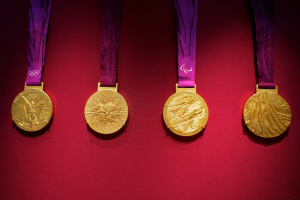New methods of measuring country-by-country Olympic success

 In July 2012, thousands of athletes from around the world will gather to compete in the Olympic Games, the most prestigious of all multi-sport international competitions. Measuring individual performance in London will be easy. Measuring a country’s Olympic success will be far more problematic, because media outlets in different countries use different counting systems. Although the International Olympic Committee (IOC) doesn’t recognize country rankings, the medal table is constantly updated during the competition and both the media and the public in countries large and small follow its evolution with keen interest.
In July 2012, thousands of athletes from around the world will gather to compete in the Olympic Games, the most prestigious of all multi-sport international competitions. Measuring individual performance in London will be easy. Measuring a country’s Olympic success will be far more problematic, because media outlets in different countries use different counting systems. Although the International Olympic Committee (IOC) doesn’t recognize country rankings, the medal table is constantly updated during the competition and both the media and the public in countries large and small follow its evolution with keen interest.
But the medal table isn’t standardized. In some countries, including the United States, the media rank countries according to the total number of medals won. Others use a system based on the number of gold medals. It’s very tempting to choose the system that makes your country look the best, but both of these systems are flawed. For example, let’s say that you choose to base rankings on gold medals won, which is the dominant method used around the world. Hypothetically, country A’s athletes could win 10 golds and no silver or bronze medals whereas country B’s athletes might come away with 9 golds, 25 silvers, and 25 bronzes. Who can legitimately argue that country A enjoyed more medal success than country B did?